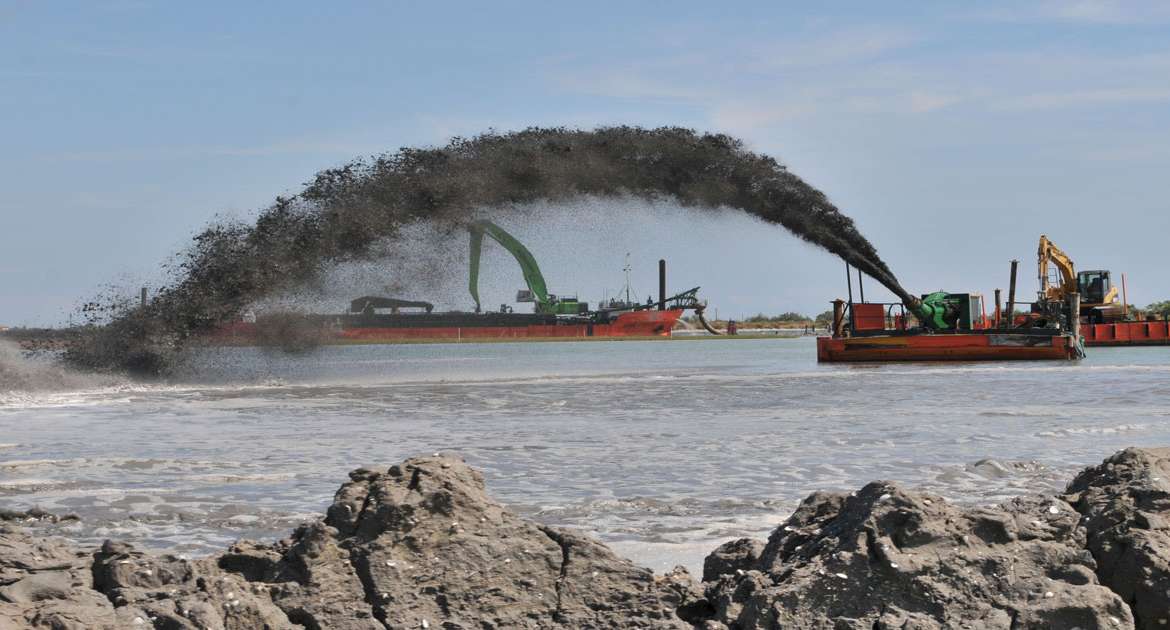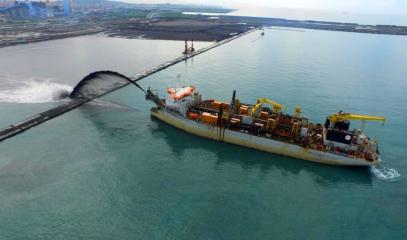Imus diocese against seabed quarries
Destroying marine ecosystems and damaging fisheries: the two seabed quarrying activities in Manila Bay have been going on undisturbed for two years. Opposition to these projects from local communities has mobilised around the petition of Bishop Reynaldo G. Evangelista
Manila (AsiaNews) - The extraction of minerals of high commercial value such as manganese, copper, cobalt, zinc and rare earth metals from the seabed of the Philippine coast is a threat to the environment and human activities in Manila Bay.
The bishop of the Imus diocese, Reynaldo G. Evangelista, is one of the few who oppose underwater quarrying. The prelate, together with the diocese's environment ministry, has launched a campaign to stop the extraction of the seabed off the San Nicolas Shoal. A mining area that stretches from the city of Noveleta to Ternate, passing through Rosario, Tanza, and Naic.
There are two active projects in the bay, both in Cavite's coastal waters: the Philippine Reclamation Authority's Seabed Quarry Project, which started in 2021 and covers 5,000 square nautical miles, and VIL Mines Inc.'s San Nicolas Shoal Seabed Quarry Project, which started in 2022 and covers approximately 8,530 miles.
Meanwhile, a group of scientists called Advocates of Science and Technology for the People (Agham) said they are extremely concerned about the dredging and extraction of minerals from the seabed and the reclamation of deep-sea ecosystems off the Philippine coast.
Last February, Agham released a report highlighting how continued dredging and deep-sea mining in Manila Bay will endanger natural marine and coastal habitats, and even threaten the country's fish production.
Indeed, scientists claim that the mining operations are pushing fish out of the Bay area of the Philippine capital because of the accompanying pollution and noise. This is witnessed by the fishermen of Cavite.
The northern and eastern sections of Manila Bay, which include Bulacan, Metro Manila and Cavite - according to recent research by the National Fisheries Research and Development Institute - are known to host the newly hatched larvae of millions of fish, which come to breed in the area. They find a cosy habitat in the mangrove forests that cover these places.
Bishop Evangelista appealed to all Catholics in the diocese and the region to raise awareness of the destruction these quarries bring, both to the environment and its delicate ecosystems, and to human activities such as fishing. In addition, the communication campaign of the Imus diocese aims to defend the seabed, which is weaker due to quarrying, making the effect of waves and tides more powerful on the coast during monsoon and storm periods.
This exploitation of quarries is against the teaching of Pope Francis' encyclical Laudato Sì and the invitation he addresses to all Christians, but in general to all women and men, to live in communion with the environment.
Bishop Reynaldo G. Evangelista's campaign is also finding support in the barangays (villages) outside the diocese, with people going to sign the petition at the diocesan shrine and Imus Cathedral in the parish of Our Lady of Pilar.
10/05/2016 17:46








.png)










